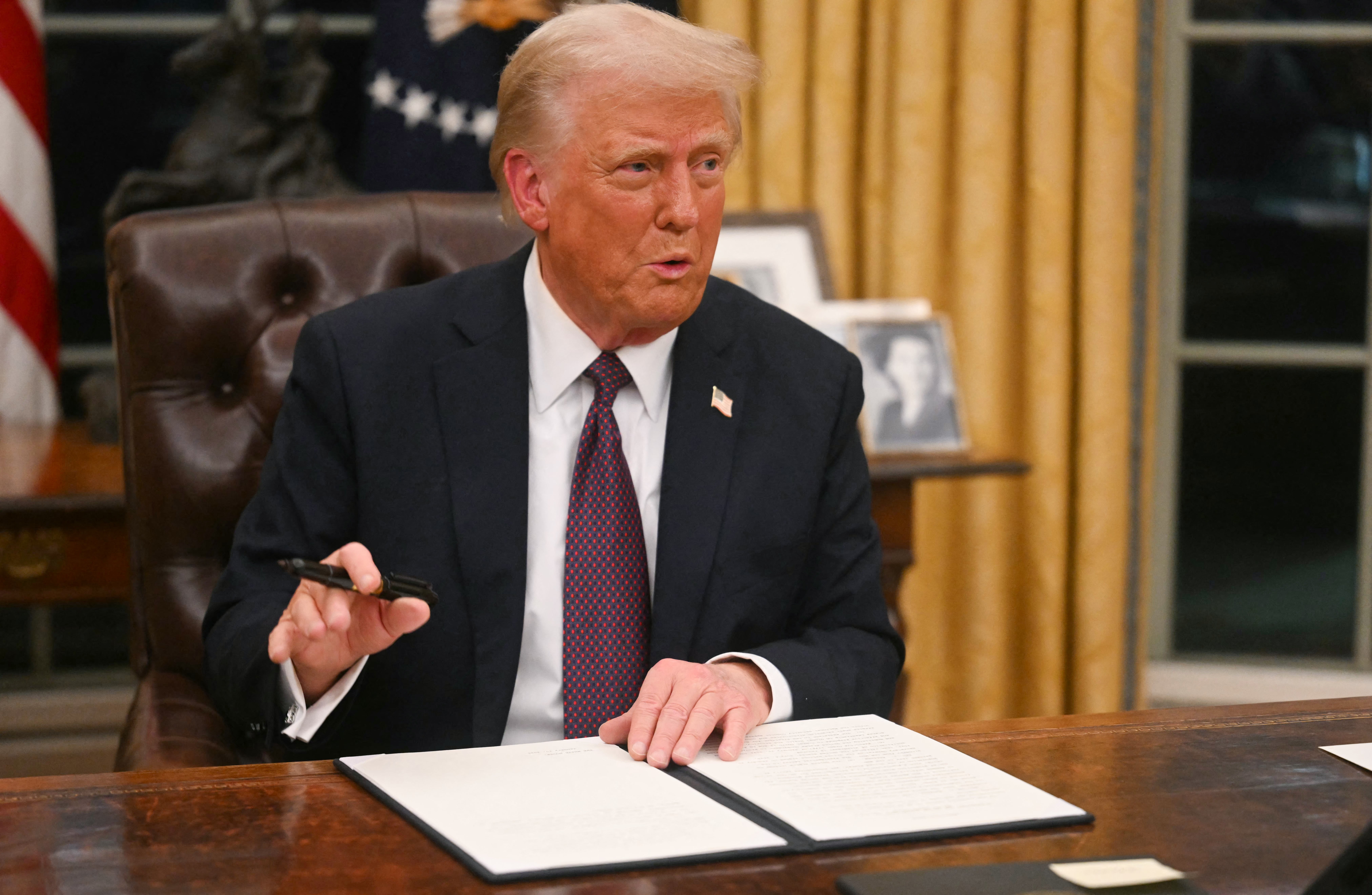Refugee resettlement groups were blindsided by Donald Trump’s sudden suspension of refugee admissions into the United States, which immediately canceled travel plans for thousands of people who were cleared for entry.
A memo from the State Department to resettlement groups and partner agencies announced that “all previously scheduled travel of refugees to the United States is being canceled, and no new travel bookings will be made” — including travel for refugees who were slated to arrive in the country before Trump’s executive order took effect on January 27.
Refugees who are already in the United States will continue receiving services, but all resettlement efforts under the U.S. Refugee Admissions Program are now suspended indefinitely — including “all refugee case processing and pre-departure activities,” according to the memo.
Roughly 10,000 refugees were booked for travel, which is now canceled.
The decision is expected to have far-reaching consequences for refugee families and people whose security clearances are at risk of expiring, with no clear timelines for their resettlement.
Early implementation of the indefinite freeze is “particularly cruel, unexpected, and unconscionable,” according to John Slocum, director of Refugee Council USA.

“This news shatters the dreams of refugees, who have already undergone thorough vetting by the U.S. government, and planning to reunify with loved ones and places children’s lives in danger who were waiting for flights to reunify with their parents in the United States,” he said.
The decision “is devastating for families who have already endured unimaginable persecution and waited years for the chance to rebuild their lives in safety,” said Global Refuge president Krish O’Mara Vignarajah.
“Refugees go through one of the most rigorous vetting processes in the world, and it’s heartbreaking to see their dreams of safety derailed just days before, or in some cases, just hours before they were set to begin their new lives here,” she added.
A person involved in organizing resettlement efforts for Afghans who assisted United States forces during the two-decade war in Afghanistan told The Independent they have not yet had any official contact with anyone in the new administration since Trump’s inauguration.
The person said people close to the administration had advised them that their outreach needed to focus on getting face time with the president by appearing on news programs that he or his inner circle are likely to see.
“We need to do more TV. Trump responds to TV,” the person said.
State Dept has immediately suspended all refugee movement and USRAP case processing globally.
— #AfghanEvac (@afghanevac) January 22, 2025
Here is the email they sent.
We are asking them to share this with all impacted cases.
This still does NOT have an impact on SIVs or other non-refugee case types, as far as we know. pic.twitter.com/DDBmNjvARD
A White House source told The Independent that officials are aware of the impact of the president’s move on Afghan allies and are working on determining what steps can be taken to address the matter
“Thousands of Afghan allies who have completed almost all required steps in the refugee process would be immediately impacted by a refugee resettlement pause, and thousands more who are currently undergoing processing would remain in limbo,” according to AfghanEvac, a nonprofit organization that facilitates refugee services.
Trump’s executive order states that the United States “lacks the ability to absorb large numbers of migrants, and in particular, refugees, into its communities.”
The order suspends refugee admissions programs “until such time as the further entry into the United States of refugees aligns with the interests of the United States,” according to the order.
“This policy doesn’t just delay hope; it extinguishes it for so many who have already suffered so much,” according to Vignarajah. “These families are escaping war, persecution, and violence. To slam the door shut after years of waiting, often in desperate conditions, is both cruel and contrary to the values America has long stood for.”
The decision signals that the country “is turning its back on U.S. law, international agreements, and the shared responsibility of addressing a global refugee crisis,” Vignarajah said.







